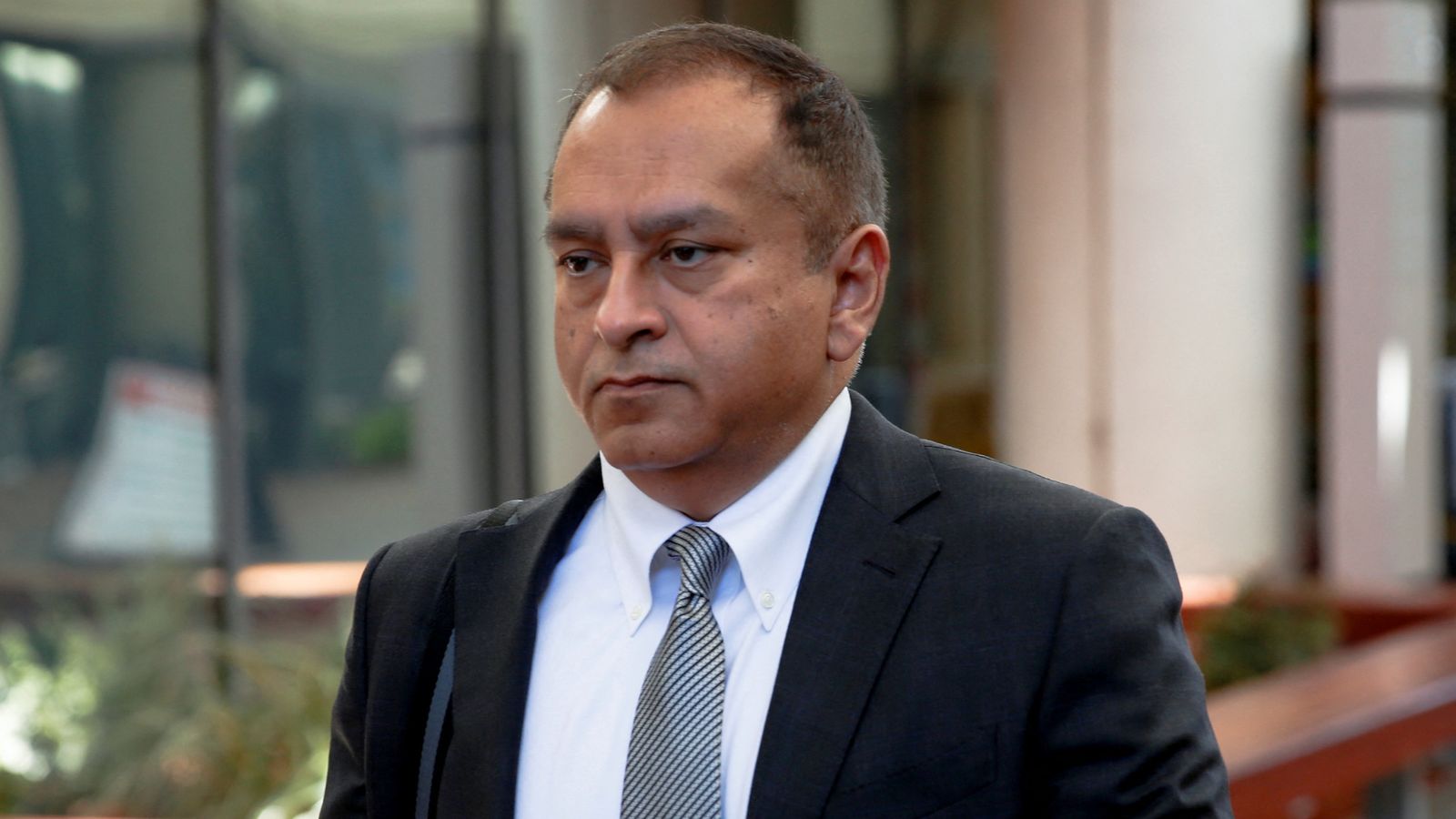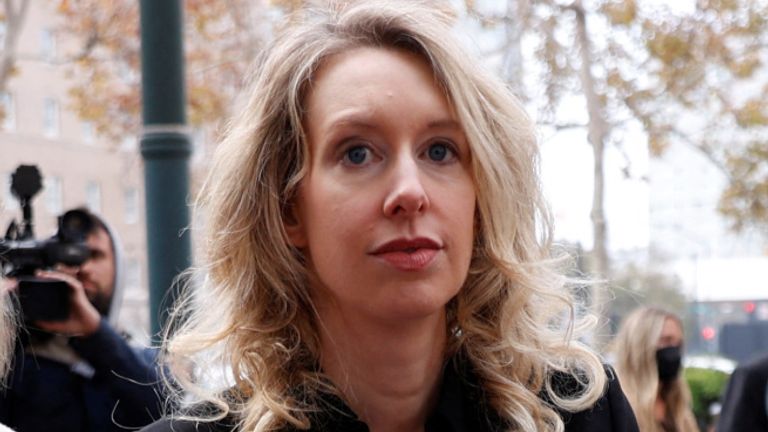The ex-partner of disgraced Theranos founder Elizabeth Holmes has joined his accomplice in being sentenced to more than a decade in prison.
Ramesh “Sunny” Balwani was jailed for almost 13 years for his role in the company’s blood-testing hoax, which saw investors conned and patients put at risk as the pair enjoyed a life of fame and fortune.
It comes just weeks after Holmes, once described by Forbes as America’s youngest female self-made billionaire, was told she would spend more than 11 years behind bars for her role in a case that gripped the world.
Balwani, 57, was convicted in July of fraud and conspiracy connected to the Silicon Valley firm’s bogus medical technology that was sold as being able to test for dozens of diseases with a drop of blood.
He was chief operating officer at Theranos and was romantically involved with Holmes, the chief executive, until their bitter split in 2016 after revelations about the company first emerged in The Wall Street Journal.
During her trial, Holmes, now 38, accused Balwani of manipulating her through years of emotional and sexual abuse, allegations his lawyer has denied.
In court documents, his legal team painted him as a hard-working immigrant who moved from India in the 1980s – but prosecutors said he “presented a fake story” about Theranos’s technology after “making the calculated decision that honesty would destroy” the company.
Read more:
The incredible rise and fall of Elizabeth Holmes
Theranos founder ‘has ambition to rise again’ despite case
Who is ‘Sunny’ Balwani?
Balwani graduated from the University of Texas in 1990 with a degree in information systems.
He later moved to Silicon Valley, where he first worked as a computer programmer for Microsoft before founding an online startup that he sold for millions of dollars during the dot-com boom of the 1990s.
Upon meeting Holmes, who had dropped out of Stanford University to pursue her ambition to launch Theranos, he quickly became enthralled by her – just as the company’s investors soon would.
Theranos was founded in 2003, helped by Holmes redirecting family funds meant for her studies into the business.
Styling herself on her idol Steve Jobs, the famed Apple co-founder, Holmes’s firm took Silicon Valley by storm on the promise of groundbreaking blood testing technology that attracted money from the likes of Rupert Murdoch and American pharmacy giant Walgreens.
Balwani’s lawyers said he invested $5m (£4m) in a stake that became worth about $500m (£411m) – a fraction of Holmes’ one-time fortune of $4.5bn (£3.6bn) and the firm’s peak value of $9bn (£7.4bn).
‘He maintained a facade’
Prosecutors said Balwani was a willing accomplice in Holmes’s lies about Theranos’s technology, and readily “maintained this facade of accomplishments” on a daily basis for years.
He was depicted as a ruthless, power-hungry figure, as they sought to secure a conviction on a dozen charges.
While Holmes was acquitted on several counts of defrauding and conspiring against people who paid for Theranos’s blood tests, Balwani was found guilty on all 12 of his.
Balwani’s lawyers had asserted that Holmes “was dramatically more culpable” for the fraud.
“He actually invested millions of dollars of his own money; he never sought fame or recognition; and he has a long history of quietly giving to those less fortunate,” they said.
Balwani “has lost his career, his reputation, and his ability to meaningfully work again”, they added, having been portrayed in various media about the scandal – including an acclaimed TV drama series.
Prosecutors want Holmes and Balwani to pay $804m (£660m) each to defrauded investors.
The judge deferred a decision on that during Holmes’ sentencing until an unspecified future date.



